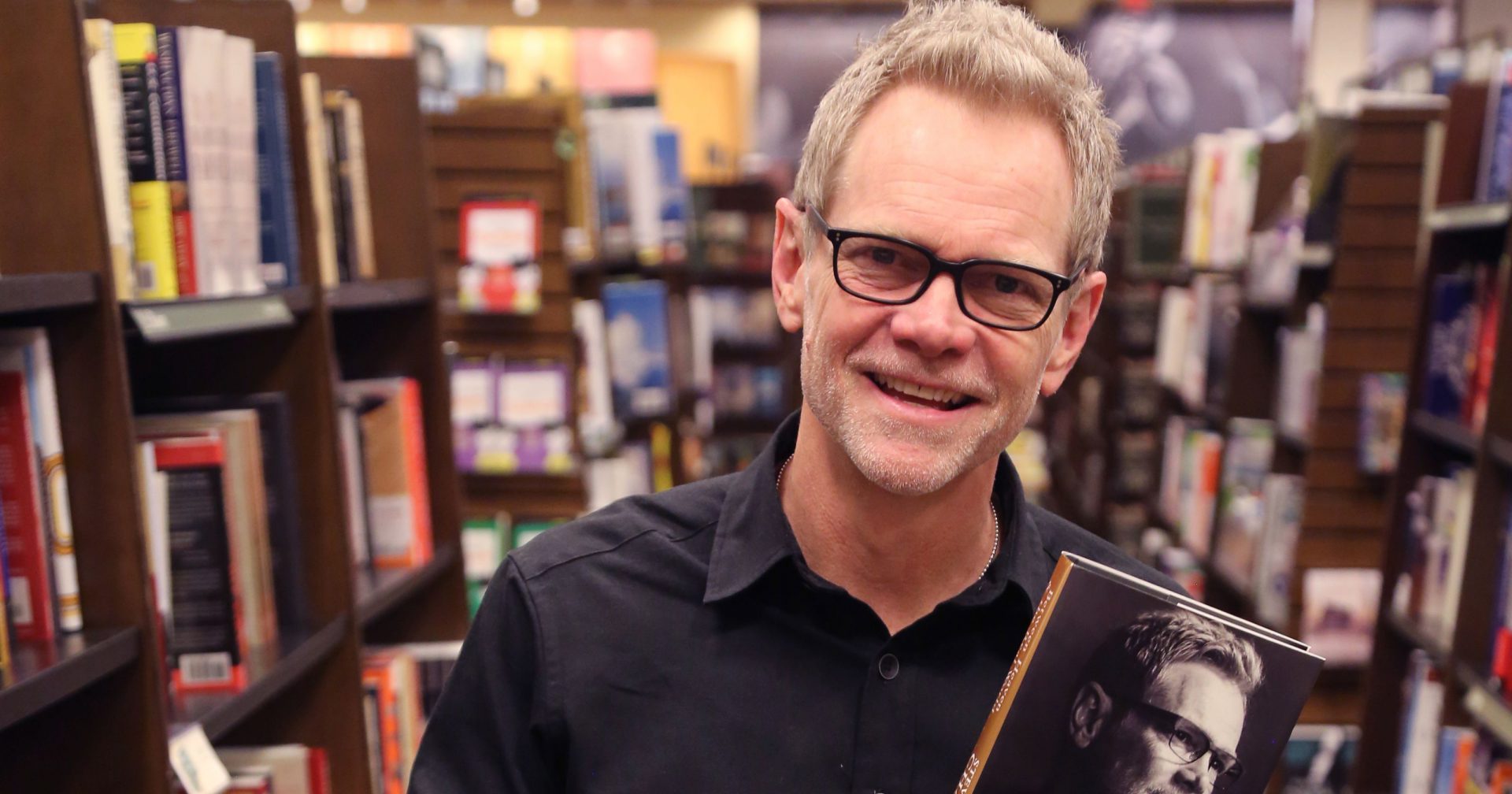For more than half of my life, Steven Curtis Chapman has composed much of “the soundtrack” for my Christian walk.
It was 1994 when I unwrapped a cassette tape of The Great Adventure. I was 13. The album’s instrumental prologue set the stage for something epic and created an atmosphere of anticipation, until the swelling orchestra suddenly collided with “Saddle up your horses!” and the fresh blend of country rock that was “The Great Adventure.”
The music startled me, but so did the Christian life Steven described. Walking with Jesus is epic, I learned. A thrilling ride. The Christian life wasn’t about “long-faced religion” but an ever-deepening exploration of the horizons of God’s grace. “This is what we were created for,” Steven sang.
I was hooked. Not just on SCC’s music, but on his portrait of the Christian life as a beautiful journey of joyful struggle. Within months, I had purchased his older albums, where that same combination of earnestness and excitement was on display.
SCC’s music solidified what I was learning from my local church—truths about God’s love and grace. My pastor’s exposition of God’s Word would leave me in awe at God’s glory. Then SCC would give musical expression to that wonder, that sense of being “speechless” by the gravity of my sin and the greatness of God’s grace.
Many of SCC’s songs gave voice to the Christian’s desire to obey God’s call. “Do They Know?” and “For the Sake of the Call” shaped my young missionary heart. “Whatever,” a song about doing whatever God says (from SCC’s 1999 album), was a personal favorite the year before I bought a one-way ticket to Romania, where I devoted the five years to school and mission work. I’m grateful for desire-shaping songs like these that directed my young heart toward God’s mission.
Steven sang about all of life. He didn’t just compose lyrics of worship for a church setting. He also wrote about showing God’s love through social involvement, such as prison ministry (“Free”) or adoption (“When Love Takes You In,” “All I Really Want for Christmas”).
Then there were the marriage songs. “How Do I Love Her?,” “Go There With You,” “What I Really Want to Say,” and “I Will Be Here” didn’t paint rosy pictures of a husband and wife. No, they were more like cries from a husband struggling to figure out how to love his wife, and how to overcome the hurdles that threatened their relationship, while holding doggedly to the vow to be faithful in good times and bad.
Following Jesus wasn’t about escaping this world, but loving Jesus while walking in it. That’s why I loved his songs about the normalcy of the Christian life, like finding joy in the “signs of life” that show up in “bicycles all over my driveway” or “bats and balls all over my yard.”
Every album had at least one “anthem” about living the Christian life with boldness. We were made to “live out loud” to “dive” into the rivers of God’s grace and be forever changed. To make our “declaration of dependence” on God and give all glory to Jesus. To be the dancer in tune with the “Lord of the Dance.”
It was easy to sing along with most of SCC’s recordings. Most of the time. There was always one song I couldn’t sing along to—“My Redeemer Is Faithful and True”—because it choked me up. Still does, every time.
Now, I need to stop talking about Steven Curtis Chapman songs and get on with this post, which was intended to be a review of his autobiography, a 400+ page book that outlines his life story.
Between Heaven and the Real World traces the path of Steven’s childhood, his country music beginnings, to his rise as one of the most respected Christian singers today. The book is filled with interesting details. (I never knew that he and his wife’s first home was only about 20 minutes down the road from me!) He opens up about wounds in his childhood, problems with his marriage, and challenges with juggling family and career responsibilities. Music fans will enjoy the anecdotes about meeting famous celebrities (Val Kilmer, Jimmy Kimmel, and so on) or other Christian music artists. Scotty Smith, their pastor, shows up on occasion, with the words and counsel you’d expect from a gospel-soaked minister whose prayers point us to Jesus daily.
Most readers, however, will want to know more about the tragic loss of one of Steven’s daughters. Steven slows down the narrative and describes the event in vivid detail, as if to show how us how time stood still on that dreadful day in 2008. What I still can’t get over is what Steven first shouted to his son responsible for the accident: “Will Franklin, your father loves you.” Out of the overflow of the heart the mouth speaks, Jesus said. In that moment of utter terror and grief, it is stunning to consider the words of love, affirmation, and grace that flowed from this father’s lips.
“The Great Adventure” that Steven sang about has indeed brought this family to “mountains so high” and “valleys below.” The valleys are represented in many of the songs that followed, from “Not Home Yet,” to “God Is God,” to “Long Way Home.” Now he is a grandfather, both literally for his family and figuratively for Christian music. I continue to admire him.
For those of us a few laps behind in the spiritual race, his songs still inspire us and strengthen us for the road ahead. Songs about yearning and peace. Rest and restlessness. Sin and salvation. Struggle and relief. Affirmation and doubt. In other words, all the emotions that make up the Christian life. You’ll find them in Steven Curtis Chapman’s heart, in his songs, and now in this, his autobiography.
